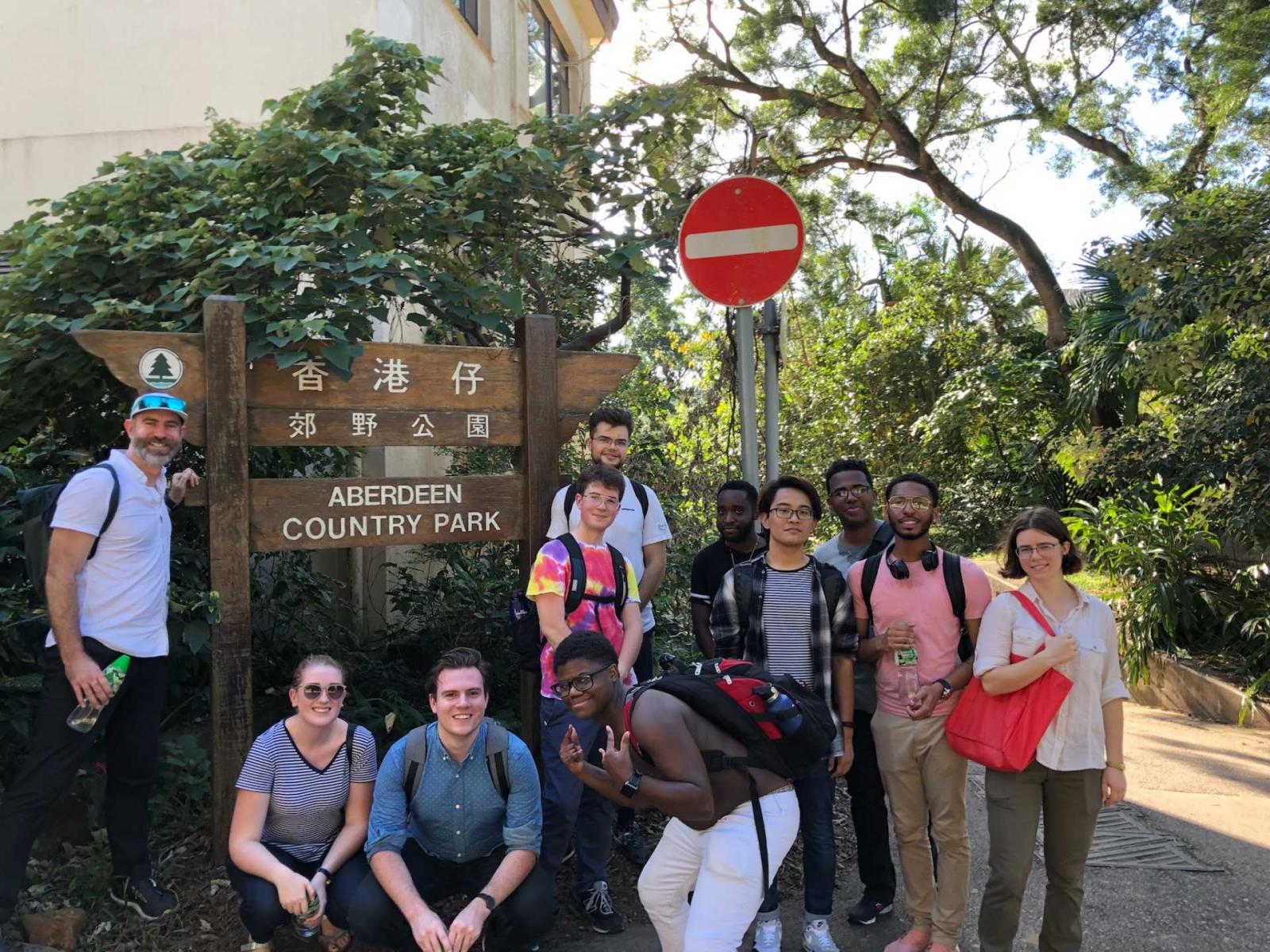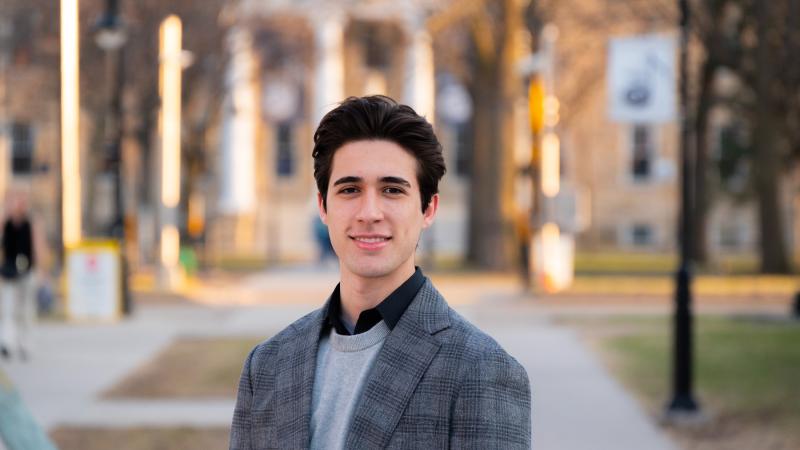Lawrence University has launched an International Relations major that will allow students to focus their studies on global diplomacy, economics, health, and security.
It’s a field of study that speaks to growing student interest, said Jason Brozek, the Stephen Edward Scarff Professor of International Affairs and associate professor of government and one of the architects of the new major.
“We know it’s something students are looking for,” he said. “And they’re looking for it because so many of the 21st century’s biggest challenges are rooted in international politics. The International Relations major is grounded in concepts like power, security, conflict, and international law, which are all crucial for understanding and addressing things like the climate crisis and the displacement of refugees around the world.”
See details of the International Relations major here.
The new major, which began this fall, is part of Lawrence’s Government department. Government students can now major in either government or international relations.
Brozek and colleagues Ameya Balsekar, associate professor of government, and Claudena Skran, the Edwin & Ruth West Professor of Economics and Social Science and professor of government, have been working toward the creation of this new major for several years and will be the primary faculty teaching within the major. They’ll work in concert with the Career Center as students prepare for careers tied to international affairs.
“I’m jazzed about the way we’ve folded in professional development and career preparation as central, integral parts of the new major,” Brozek said. “Students who declare an IR major are required to take a new course called The Practice of IR, which directly connects the academic discipline with career paths in diplomacy, foreign policy, global nonprofits, multinational businesses, and international affairs. The major is also closely tied to all sorts of different study abroad programs and faculty-led field experience programs.”
Collaborations with the Career Center will connect students with internships, alumni networking, and other opportunities through the Government, Law & International Affairs career community.
Lawrence has a deep history of alumni excelling in the field of international diplomacy. Four alumni have been appointed U.S. ambassadors by presidents: Walter North ’72 was U.S. ambassador to Papua New Guinea, the Solomon Islands, and the Republic of Vanuatu from 2012 to 2016; Christopher Murray ’75 was the U.S. ambassador to the Republic of the Congo from 2010 to 2013; David Mulford ’59 served as U.S. ambassador to India from 2004 to 2009; and Shaun Donnelly ’68 was U.S. ambassador to Sri Lanka from 1997 to 2000.
Donnelly, who served with the U.S. Foreign Service for 36 years, returned to Lawrence during Fall Term as the Distinguished Visiting Scarff Professor. He is the latest in a line of distinguished public servants, professional leaders, and scholars who have shared insights and collaborated with students and faculty since the Scarff Professorship was established at Lawrence in 1989.
“My message is that I think a good liberal arts education is about the best preparation you can have for working internationally,” Donnelly said during his two-week visit to campus. “The world is constantly changing and you’ve got to be able to adjust.”
International relations courses explore topics ranging from security and treaties to politics and trade. The major pairs well with study in economics, history, languages, and global and public health, among others.
Part of the International Relations program could involve a traveling classroom or field experience, which takes students abroad for focused study. Past traveling classrooms have gone to Sierra Leone, Hong Kong, and Jamaica. Students also are highly encouraged to study abroad when and where they can.
The International Relations major differs from the Global Studies major in that it more squarely focuses on political science, government, conflict, cooperation, and institutions on a global scale. Global Studies, meanwhile, is a draw for students interested in an interdisciplinary approach to global issues and networks that broadly combines social sciences, arts, humanities, and language.
“The Government major and the new IR major are both political science degrees, but with a slightly different focus within the field,” Brozek said. “The Government major offers more breadth across the discipline, while the IR major is a deep dive into a specialty. That specialization in a particular field is also what makes the IR major distinct from Global Studies, which is broad and interdisciplinary.”




